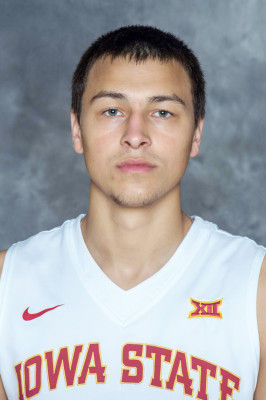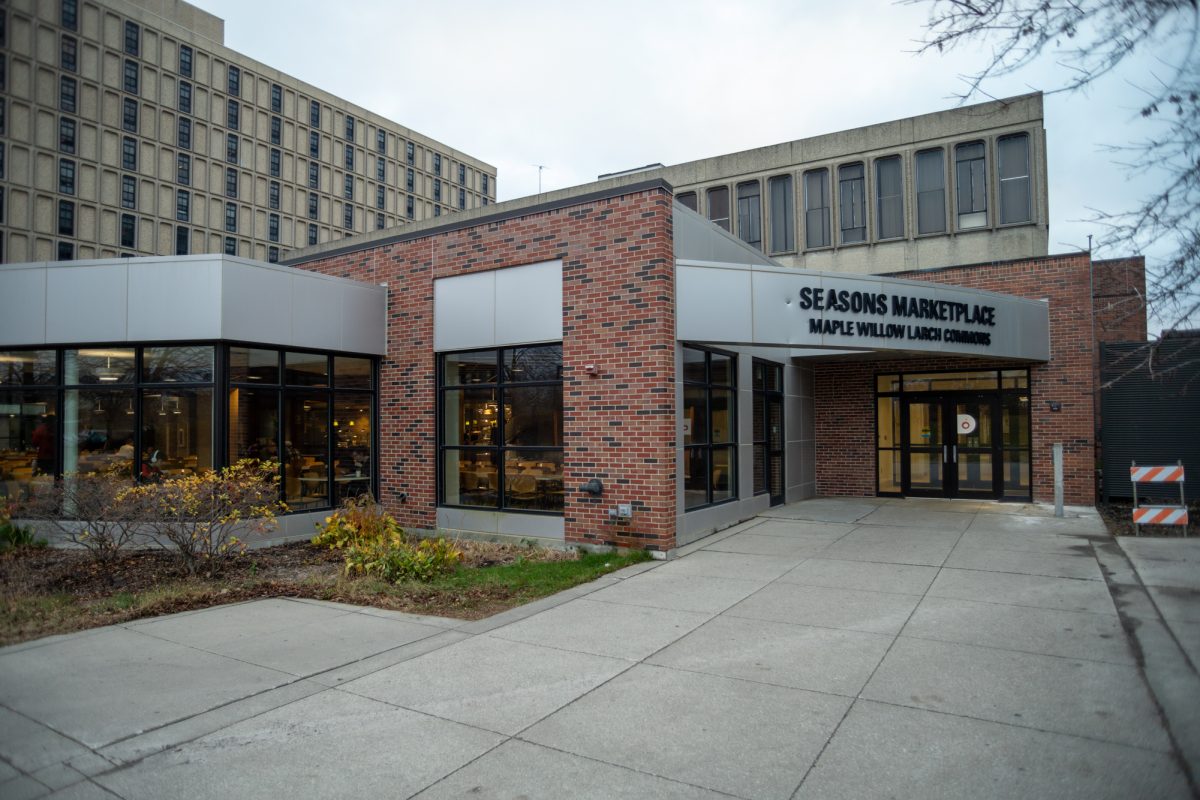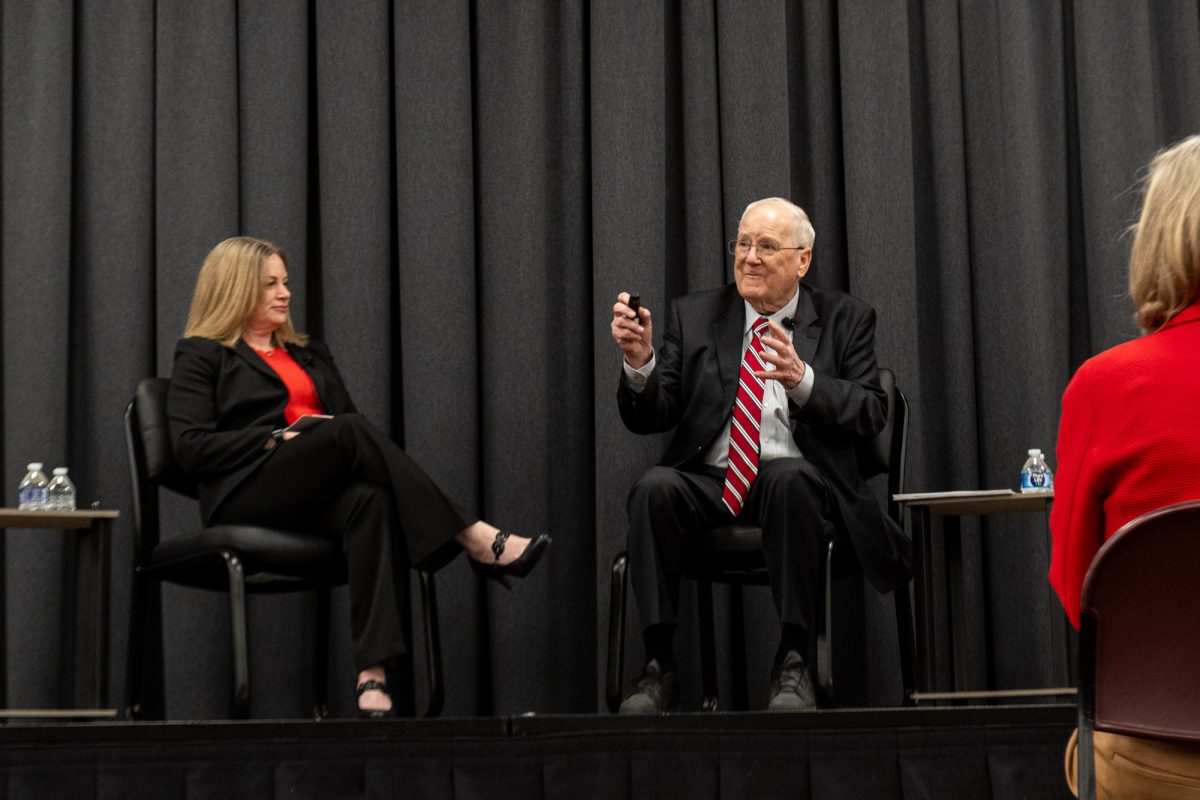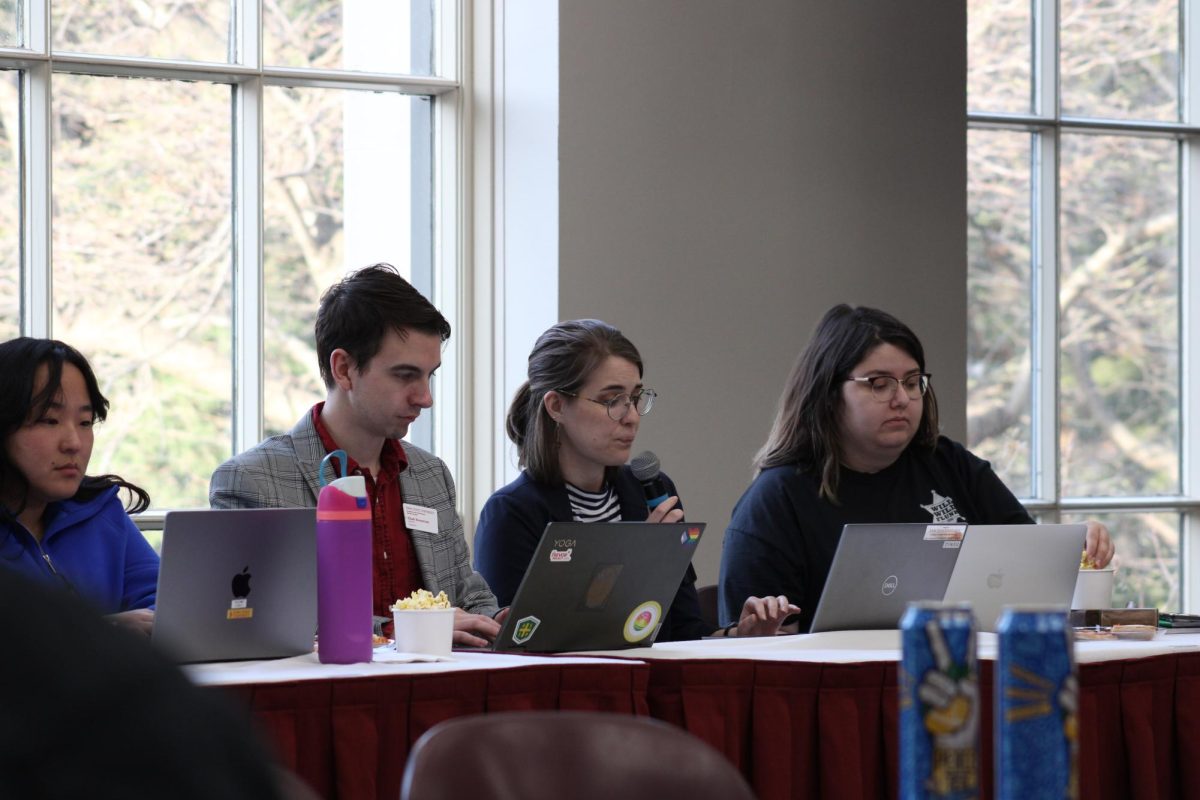Dible overtime: Through the cracks

Courtesy of ISU Athletic Department
ISU guard Nick Noskowiak was charged with multiple crimes in Wisconsin.
September 2, 2015
When it comes to student-athlete accountability, the NCAA is known for its stringent enforcement of a myriad of rules — some of which can border on the absurd.
However, the circumstances surrounding the departure of freshman point guard Nick Noskowiak from the ISU men’s basketball team raise a pertinent question as to whether or not the NCAA is concerning itself with the right types of violations.
In 2011, then-Baylor forward Perry Jones was suspended by the NCAA for six games because his mother Terri accepted a $4,500 loan from Jones’ former AAU basketball coach when Jones was a senior in high school.
Battling a heart condition and mounting medical bills, Terri borrowed the money at the beginning of three consecutive months to cover her mortgage payments. Each time, she paid that money back by the middle of the month, and Jones himself was unaware of the transactions until after the fact.
The NCAA discovered this “impermissible” financial behavior a year or so later, and Jones lost the final game of his freshman season as well as the first five games of his sophomore year — all because his mother wanted to keep her family off the street.
But had she allowed her family to become homeless, the NCAA would have taken no issue with Jones’ eligibility. The flawed logic and lack of contextual consideration behind the NCAA’s decision is staggering, to say the least.
That brings us back around to the case of Noskowiak, who was bound for Iowa State before legal troubles derailed his career in advance of his first season with the team.
Almost as alarming as some of the angry, defiant behavior surrounding his arrests was that two separate incidents of Noskowiak’s criminal misconduct in Wisconsin — which resulted in multiple charges including a class-F felony and a drunk driving violation — came and went without the ISU basketball program ever gaining knowledge of them.
“I probably didn’t find out until maybe two days ago,” said ISU coach Steve Prohm on Aug. 22, 13 days after Noskowiak’s second run in with police and his subsequent arrest for recklessly endangering the safety of one of his own family members.
Back in May, Noskowiak was also charged with an OWI after refusing a blood test by police following a traffic stop. The test was requested because police suspected his impairment involved drug use.
The incident in May fell in a sweet spot for Noskowiak to avoid both discovery as well as punishment by Iowa State. Technically, because Noskowiak was not yet an official student, his actions did not violate the student code of conduct policy.
His first arrest also came after Iowa State’s initial vetting process, part of which “… requires that all students indicate on the admissions application whether they have been arrested for criminal offenses,” according to the ISU athletic department.
Thirdly, the arrest took place during the chaos surrounding Fred Hoiberg’s eventual move to the NBA, nearly three weeks before Prohm was even hired.
And finally, the incident occurred in Wisconsin, which kept it off the athletic department’s radar as it doesn’t possess the resources to monitor criminal databases in all of its players’ home states on a daily basis.
Noskowiak then came to Iowa and participated in the Capital City League. Coaches are not allowed to be a part of the organized activities per NCAA regulations, but Noskowiak had ample time to report his misconduct to the team.
He chose not to do so.
So why does the NCAA — which has written regulations on top of regulations policing everything from Derrick Rose’s SATs to Mitch McGary’s marijuana use to a West Coast Conference golfer using a university hose and university water to wash her car — choose not to enact a rule requiring players to report criminal misconduct to their universities?
“Criminal matters are handled on the campus level,” was all that NCAA spokeswoman Meghan Durham would say on the matter in an email inquiry.
More than Noskowiak’s OWI offense, the timing of which complicated matters, the larger concern in this regard is his felony charge. It stemmed from his arrest in August when he was an official member of the team, making him eligible for a university-enforced punishment.
The situation transpired on the eve of the Cyclones’ trip to Spain for a short tour of exhibition games — a trip Noskowiak was never planning to make because of what the team described as “family reasons.”
“Usually you get wind of (criminal charges). We were in Spain, so it’s probably all a little bit different because we were out of the country,” Prohm said.
“You usually hear about it once something happens, so I don’t know if it’s (Noskowiak’s) job to report it … I didn’t have a problem with how the situation was handled.”
Prohm didn’t have a problem, but maybe he should have.
In the end, it proved a no harm, no foul scenario for the Cyclones. Noskowiak and Prohm mutually agreed to part ways the following day. But the lack of NCAA mandated credibility for Noskowiak’s part could have placed Iowa State in a precarious position.
Had his felony charge not been discovered by the media, it’s reasonable to believe that Noskowiak would have perpetuated his pattern of silence.
He would still be a Cyclone, and Prohm would unknowingly have a player facing a felony charge listed on his roster — one who escaped punishment under the ISU student code of conduct by a lie of omission.
When it comes to assigning blame for the narrowly-averted debacle, much of it ultimately rests with Noskowiak, although it’s easy to understand why he would have been afraid to incriminate himself when the NCAA doesn’t require him to do so.
“Most guys who get in trouble come in and report it,” said a spokesperson for the ISU athletic department. “Nick should have, but he didn’t.”
Some blame may also fall to Iowa State itself, but the school is absolved to an extent because of the unique timing and location of each of Noskowiak’s arrests.
“It happened in another state, and sometimes stuff like that falls through the cracks. But today, it almost always gets back around to us,” an ISU spokesperson said. “We take player misconduct very seriously. If we had known right away, we would have suspended him right away.”
But ultimately, the majority of the blame falls on the shoulders of the NCAA, which should stop sticking its nose in players’ business for a countless number of wrong and ridiculous reasons, and start intervening for a few of the right ones.
If an organization can count up text messages between coaches and recruits, and can suspend student athletes if someone else pays for their tattoos, it should also mandate that players report criminal misconduct to their universities under threat of suspension.
That’s just common sense.





